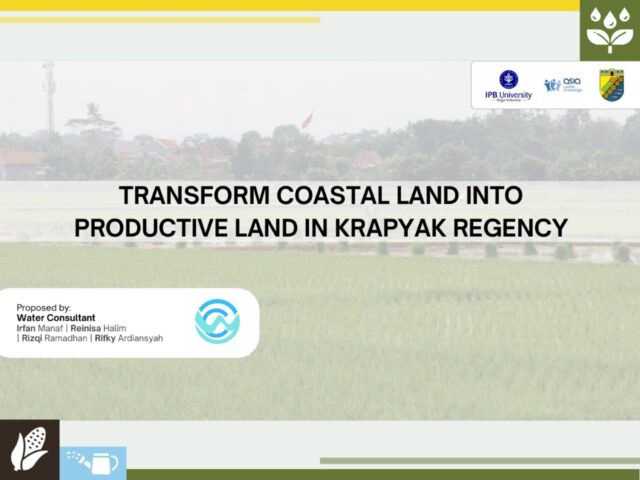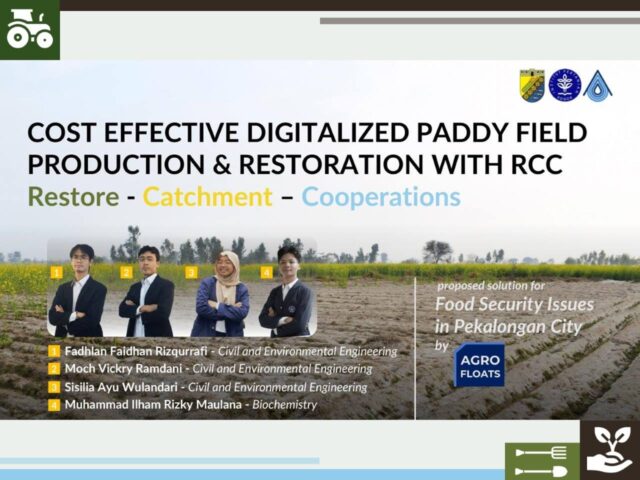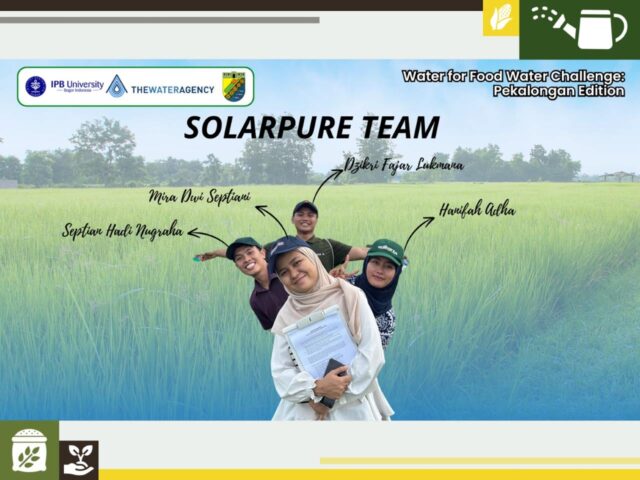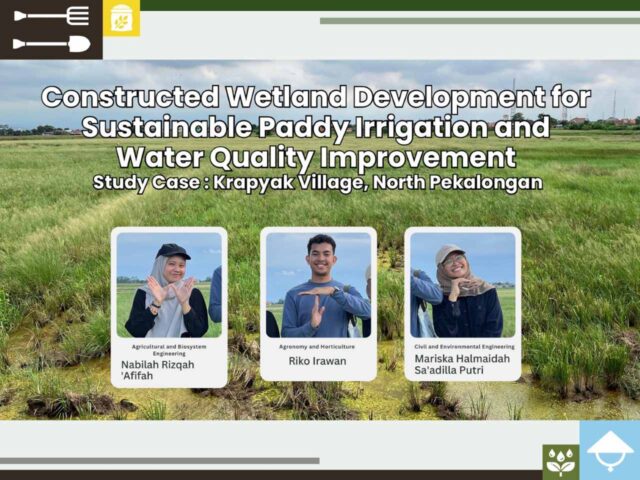Background
Pekalongan, a city located on the coast, faces environmental challenges that appear inadequate for supporting productive agriculture, as indicated by the data we collected. The agricultural issues that occur in Pekalongan include the salinity of the soil, which is higher than the allowable limit to grow rice, water scarcity that impacts the crop yields, and farmer participation, which mostly consists of the old farmers.
Solution Proposal
The Sustainable Agricultural Revitalisation Strategy for the Pekalongan Ecosystem (SAVE) addresses agricultural challenges through three main pillars: environmental management, adaptive agricultural practices, and socio-economic empowerment, creating a sustainable foundation for the agricultural sector.
The first strategy, Soil Salinity Management, focuses on improving soil health through natural leaching during the rainy season, gypsum application to enhance soil structure, and fertility improvement. These efforts restore productivity in farmlands affected by salinity.
The second strategy, Adaptive Water Management, involves implementing polder systems to distribute clean water to rice fields, treating water to mitigate high salinity from polluted rivers, and developing rainwater harvesting systems. These solutions rely on local meteorological and hydrological data to ensure a consistent water supply while addressing challenges posed by sea level rise and tidal flooding. Statistical and mathematical modeling projects polder systems to prevent saltwater intrusion and protect agricultural land, reducing salinity in irrigation water, preserving soil health, and safeguarding crops.
The third strategy, Versatile Crop Rotation, alternates rice and legumes to counter the effects of tidal flooding. Rice, tolerant to waterlogging, is planted during the rainy season, while legumes like mung beans or soybeans are grown in the dry season. This rotation restores soil fertility through nitrogen fixation, improving yields sustainably and mitigating the risks of prolonged flooding and soil salinity.
The fourth S.A.V.E. strategy focuses on farmer Empowerment through workshops on soil management, salt-tolerant crops, and sustainable farming. Collaboration with Badan Meteorologi, Klimatologi, dan Geofisika (BMKG, or Meteorology, Climatology, and Geophysics Agency of Indonesia in English) provides climate predictions for planting schedules, while involving farmers in decision-making ensures policies meet local needs.
Impact
These efforts enhance resilience, productivity, and sustainability in Pekalongan City’s agricultural sector, addressing environmental, water management, and socio-economic challenges for long-term success. The S.A.V.E. strategy improves soil health, ensures reliable water supply, and fosters sustainable farming to enhance productivity. It empowers farmers through training and expands economic opportunities while promoting environmental resilience via ecosystem restoration and adaptive measures like polder systems. By boosting food security and local economies, it strengthens communities. Collaboration with governments, NGOs, and universities ensures scalability, making it a model for tackling similar challenges elsewhere.
See more details on our presentation slide below:

Team Profile
Irfan Manaf, Environmental Engineering and Management, [email protected]
Muhamad Rizqi Ramadhan Farid, Chemistry, linkedin.com/in/mrizqiramadhan
Reinisa Halim Santoso, Applied Meteorology, https://www.linkedin.com/in/reinisa-santoso-84ab34246/
Rifky Ardiansyah Robyano, Chemical Analysis, www.linkedin.com/in/rifkyardiansyahr





